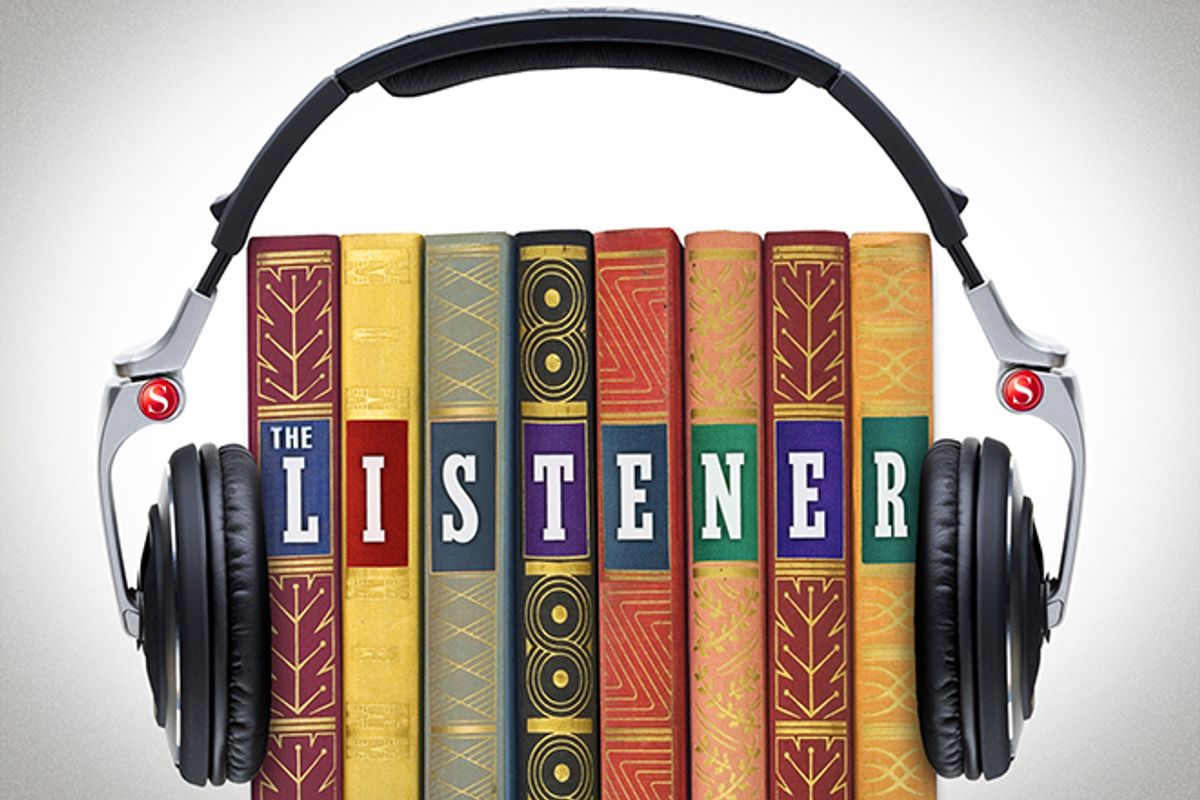With very few exceptions (namely, Neil Gaiman and David Sedaris), a professional actor makes the best narrator for most audiobooks. But not just any actor will do, and often a performer who's vivid on stage or screen can't carry off the complex task of a book narration, especially if it's a novel with an assortment of voices or a complex prose style that doesn't observe the cadences of spoken English. So I'm leery whenever a name actor gets hired to read an audiobook; often the more famous performers aren't flexible or self-effacing enough to become a vehicle for the comprehensive vision of another artist. (That said, Susan Sarandon's recent narration of Carson McCullers' "A Member of the Wedding" is a marriage of true minds -- highly recommended.)
As I see it, Jim Broadbent is a name actor. His performances in several Mike Leigh films -- particularly "Life Is Sweet" -- still make my heart feel tenderized when I think of them, years later. I love him! But do I want him to read a book to me? Depends on the book.
"The Unlikely Pilgrimage of Harold Fry" is the right one. Rachel Joyce's novel describes a retired man's impromptu effort to redeem his life by walking the entire length of England to visit a long-lost friend who's dying of cancer. Harold's relationship with his wife, Maureen, has withered into mere civility and the two of them have been separated somehow from their brilliant, troubled son. Harold's friend, a former co-worker named Queenie, once did him an enormous favor, then disappeared. When a goodbye letter from her arrives at Harold's home in Southern England, he suddenly decides that the only proper response is to make his way to her on foot, a journey he believes will keep Queenie alive. He sets out in "yachting shoes" (a sort of loafer -- Harold has no yacht), with only the clothes on his back.
This premise resembles that of David Lynch's 1999 film "The Straight Story," another tale of a late-life bid for renewal via the open road. Joyce is more sentimental than Lynch, and I cannot deny that "The Unlikely Pilgrimage of Harold Fry" occasionally dips into inspirationalese. "If trying to find a way when you don't even know you can get there isn't a small miracle; then I don't know what is," is one example, the kind of line that your Kindle is always telling you has been highlighted by 17 other readers, people who must be truly desperate for a buck-up.
On balance, though, Joyce's felicitous touches outweigh her Hallmarkisms. Harold's firsthand (or foot-first) encounters with his country, its people and their roads and streets, are believably grounded. The simple intimacies he longs for, like being able to make his wife laugh again, feel genuine. It helps that, despite the occasional on-the-nose insight, the characters are so British, which means that their struggle toward self-knowledge faces some serious obstacles in the form of chronic repression and embarrassment.
Here, too, is a case where the audio version of the novel must be considerably richer than the print. Who is more humbly soulful, more genuine than Jim Broadbent? Who better able to convey this modest man's moments of despair and exultation without stooping to bathos? It also doesn't hurt that it's so easy to picture Broadbent himself as Harold, a shy pilgrim who nevertheless has the stillness of a born listener. Of course strangers would confide in him, once he dared to put himself in their paths, and of course he would eventually become a kind of celebrity before slipping away from it all to finish the journey on his own terms. Perhaps there are listeners capable of resisting him in this mode, but I'm happy to say that I am not one of them.
* * *
New to Audible? Listen to "The Unlikely Pilgrimage of Harold Fry" for free, or check out a sample.



Shares